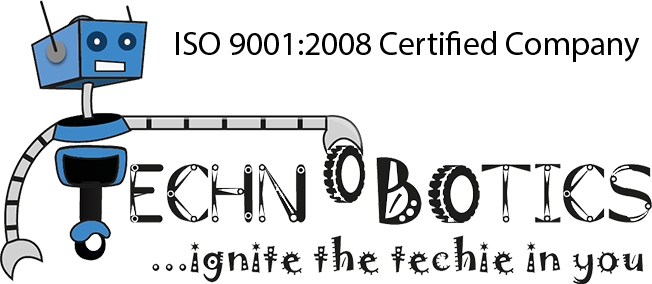- Robotics has transcended its status as mere science fiction and has become an integral part of our reality. From automated manufacturing processes to household helpers, robots are increasingly prevalent in our daily lives. For beginners eager to delve into this fascinating field, choosing the appropriate level of robotics course is crucial. With multiple options available, it’s essential to choose robotics courses for beginners to ensure an enjoyable and fruitful learning journey.
Introduction to Robotics
Introductory robotics classes Mumbai serves as the foundational stepping stone for beginners venturing into the world of robotics. These courses typically cover fundamental concepts such as robot design, kinematics, sensors, actuators, and basic programming. Students gain insights into the principles governing robotic systems and acquire hands-on experience through practical exercises and projects. Introduction to Robotics courses often require minimal prerequisites, making them accessible to individuals with varying levels of technical background.
Levels In Robotics
Beginner Programming and Robotics:
For beginners with a keen interest in programming robotics classes Mumbai combining robotics with coding can be an ideal choice. These courses focus on teaching programming languages commonly used in robotics, such as Python, C++, or MATLAB, while integrating practical exercises using robotics platforms or simulators. Students learn to write code to control robot behavior, interact with sensors, and perform tasks autonomously. This level of course provides a balance between theoretical concepts and practical application, catering to those with a preference for hands-on learning.
Robotics Kits and DIY Projects:
For enthusiasts eager to dive into building their robots from scratch, robotics courses in Mumbai centered around robotics kits and do-it-yourself (DIY) projects offer a hands-on approach to learning. These courses provide students with robotics kits containing components like motors, sensors, and microcontrollers, along with instructions for assembling and programming them. Participants learn through experimentation, troubleshooting challenges, and customizing robots to perform specific tasks. Robotics kits and DIY projects courses foster creativity and problem-solving skills while empowering beginners to explore robotics in a tangible and engaging manner.
Specialized Tracks:
As beginners advance in their robotics journey, they may choose to explore specialized tracks tailored to their interests or career goals. These tracks can include topics such as robot vision, machine learning for robotics, autonomous navigation, robotic manipulation, or human-robot interaction. Specialized robotics courses in Mumbai delve deeper into niche areas of robotics, providing in-depth knowledge and hands-on experience in specific domains. While these courses may have higher entry requirements, they offer the opportunity for beginners to specialize and excel in their chosen field within robotics.
Choosing the Right Level:
- When determining the most suitable level of robotics certificate course , several factors should be considered:
Prior Knowledge and Experience: Assessing one’s background in mathematics, physics, and programming can help determine the appropriate starting point. Beginners with limited technical background may benefit from introductory courses, while those with programming experience may opt for more advanced programming and robotics courses.
Learning Objectives: Clarifying personal goals and objectives can guide the selection process. Whether the goal is to gain a broad understanding of robotics principles, develop programming skills, or embark on DIY projects, aligning the course content with individual aspirations is essential.
Learning Style: Consideration should be given to one’s preferred learning style, whether it be theoretical lectures, hands-on labs, project-based learning, or a combination of these approaches. Choosing a course format that resonates with one’s learning style can enhance comprehension and engagement.
Future Plans: Reflecting on future career aspirations or areas of interest within robotics can inform the choice of specialized tracks or advanced courses. Selecting courses that align with long-term goals can lay the groundwork for career advancement and specialization.
About Technobotics
Technobotics stands at the forefront of modern education, offering comprehensive courses in the dynamic field of robotics. With a commitment to fostering innovation and nurturing talent, Technobotics equips students with the skills and knowledge necessary to thrive in the ever-evolving world of technology.
At the heart of Technobotics’ curriculum is a focus on hands-on learning experiences. Students are immersed in practical exercises, enabling them to gain a deep understanding of robotics principles and techniques. From basic concepts to advanced applications, each course is designed to provide a well-rounded education that prepares students for success in both academia and industry.
One of the hallmarks of Technobotics is its team of expert instructors. Drawing from diverse backgrounds in engineering, computer science, and robotics, these professionals bring a wealth of knowledge and real-world experience to the classroom. Through engaging lectures, interactive demonstrations, and personalized guidance, instructors empower students to explore their interests and unleash their creative potential.
Technobotics offers a wide range of courses tailored to meet the needs of students at various skill levels. Beginners can dive into introductory courses that cover the fundamentals of robotics, including topics such as mechanics, electronics, and programming. As students progress, they have the opportunity to delve deeper into specialized areas such as artificial intelligence, machine learning, and autonomous systems.
Beyond technical skills, Technobotics emphasizes critical thinking, problem-solving, and collaboration. Students are encouraged to work on projects individually and in teams, tackling real-world challenges and applying their knowledge in practical ways. By fostering a collaborative learning environment, Technobotics cultivates a community of innovators who support and inspire one another.
In addition to its regular course offerings, Technobotics provides various extracurricular activities and enrichment programs. Robotics competitions, hackathons, and guest lectures are just a few of the opportunities available to students eager to expand their horizons and network with industry professionals. These experiences not only enhance students’ resumes but also foster a lifelong passion for robotics and technology.
Technobotics is committed to accessibility and inclusivity, striving to make quality education available to all. Scholarships, financial aid, and outreach programs are available to support students from diverse backgrounds and ensure that everyone has the opportunity to pursue their passions in robotics.
Technobotics is more than just a learning institution—it’s a catalyst for innovation and a gateway to a world of possibilities. By providing top-notch education, fostering creativity, and nurturing talent, Technobotics empowers the next generation of robotics pioneers to shape the future and make a positive impact on the world.
Wrapping It!
- The most suitable level of a robotics certificate course for beginners depends on individual preferences, goals, and background knowledge. Whether opting for an introductory course to lay a solid foundation, delving into programming and DIY projects for hands-on experience, or pursuing specialized tracks to explore niche areas, there are ample opportunities for beginners to embark on a rewarding journey into the world of robotics. By carefully evaluating options and selecting the level that best aligns with personal aspirations, beginners can embark on a fulfilling learning experience that sparks curiosity, creativity, and innovation in the field of robotics.


